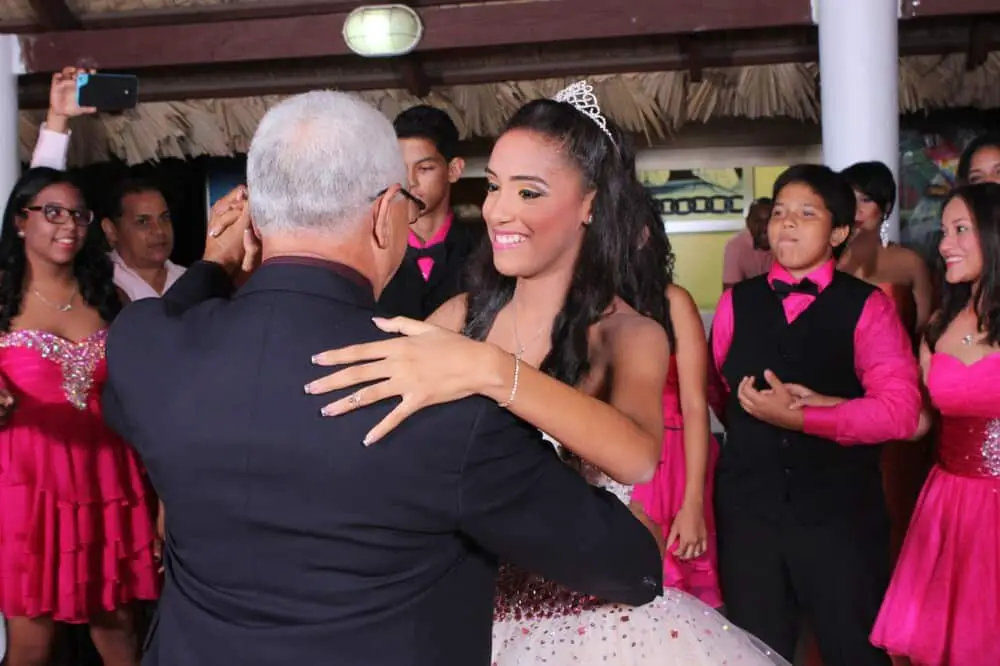
Do you remember what it’s like to be 14 or 15? Maybe you happen to have a 14 or 15 year old in your life right now. If so, then you know the mind of a 14 or 15 year old is quite the Jekyll and Hyde act, with one minute cool and collected Dr. Jekyll and the next, you’re facing the volcanic outburst of Mr. Hyde.
Just because a 14 or 15 year old might look like an adult or even possess the intelligence or strength that rivals parents, their underdeveloped brains, limited reasoning skills, and lack of emotional control mean you are still a child at 14 and 15 years old.
However, the conflict occurs when traditions tell us one thing and modern research something else.
Contents
What a 14 and 15 Year Old Child Can and Can’t Do
| Action | Age | Permitted for 14 or 15 Year old? |
| Babysit | 13 | Yes |
| Get a Part-time Job, with hourly restrictions | 15 | Yes |
| Get a Part-time Job without hourly restrictions | 16 | No |
| Learner’s Permit | 15 | Yes |
| Driver’s License | 16 | No |
| Buy Tobacco | 16 | No |
| Join the Military, with Parental Consent | 17 | No |
| Join the Military, no Parental Consent Needed | 18 | No |
| Get Married, with Parental Consent | <18 | Yes |
| Get Married, no Parental Consent Required | 18 | No |
| Drink Alcohol | 21 | No |
Milestones to Adulthood
In our society today, there are certain milestones that mark our passage from one stage of life to another. As a new parent, we eagerly await for our baby to reach each and every one.
Our pediatricians and parenting books tell us what to expect, such as holding the head up at two months and rolling over at six. When babies reach an age but haven’t met the milestone, we worry and fret. Although, most will eventually develop just fine.
Now that all of our children (four to be exact) have matured passed 14 and 15 years old, we have some reasonable expectations and understanding of this age group and what it entails.
Our children at 14 and 15 were generally eager to make their own decisions such as what to eat and wear, and how long to stay up at night. They started to formulate their own political viewpoints and global awareness. Often times, in contrast to ours (they knew better, right?).
They enjoyed some new found freedoms, our daughter in particular. She had been working as the neighborhood babysitter and dog-walker whenever an opportunity arose since the age of 13, but she was quite excited to start a part-time job at the local hardware store, no skills with hammers required, when she turned 15.
Though we witnessed a certain maturity when our children turned 14 and 15 years old, we also saw a level of frustration that mimic-ed the terrible twos.
Like the flip of switch, our sweet smiling daughter would burst into tears over dead batteries or our jokester son would aggressively argue the merits of a cheese sandwich. None of it made sense, unless of course, you remember you’re dealing with a teenager.
To show recognition of merging adulthood, most 14 and 15 year olds are allowed to hold a part-time job and do their own clothes shopping. They’re practicing how to drive a car and looking into colleges. Many are even going on dates and developing ideas of healthy relationships.
However, our country still holds that 14 and 15 year olds are not yet adults. They can’t drive on their own, get married, join the military, vote, or basically, give consent when an adult presence is needed.
One thing that kids of all ages can do is train in the martial arts. If you would like to read more about how the martial arts can help kids and adults at any age, follow this link to my husband Mat’s article.
Famous 14 and 15 Year Olds
As we think about what 14 year olds and 15 year olds can and can’t do, let’s consider some famous people of these ages in history.
| Famous Person | Age | Accomplishment |
| Louis Braille | 15 | Invented Braille code for reading |
| Laura Dekkar | 14 | Sailed around the world solo |
| Nadia Comaneci | 14 | Youngest to Receive a Perfect Score in the Olympics |
| Bobby Fischer | 15 | Chess Grand Master |
| Annie Oakley | 15 | Champion Sharpshooter |
From inventing a reading system for the blind to sailing solo around the world, there are certainly some accomplished and remarkable 14 and 15 year olds.
Educating 14 and 15 Year Olds
As a teacher, I have had the honor of teaching 14 and 15 year olds in my freshman English and Algebra classes. During these years, I enjoyed the humor of this special group, but also endured the mood swings and illogical reasoning, too.
I remember all too well how students would skip assignments for weeks on end (in HONORS English, no doubt) but beg for extra credit a week before report card grades were due. No matter how many times I explained in the beginning that extra credit would not replace unfinished work, students would still beg and plead. I guess one thing is for sure, my 14 and 15 year old students were consistent!
As a homeschool mom of four, I have had the pleasure of teaching 14 and 15 year olds in this regard, too. And though we never dealt with missed assignments in homeschool, there have been theatrics nonetheless. I guess there aren’t many 14 and 15 year olds who enjoy writing essays and reading Shakespeare!
Fourteen and fifteen year olds are usually ready to tackle more extensive writing assignments, whether they like it or not. They can be expected to write upwards of 6 or 7 page papers.
They also are traditionally ready to read Shakespeare and other classical literature. My 9th graders read Romeo and Juliet, as well as Homer’s The Iliad and The Odyssey. Fourteen and fifteen year olds are excellent at debating the more mature themes that are a part of these historic stories.
However, typically freshman and sophomores are not presented more rigorous plays of Shakespeare such as Hamlet and Macbeth. The language and vocabulary, as well as themes, are usually reserved for upper high school grades or even college level.
As well, it is not until the later years of high school that students are expected to write 10 plus typed papers and do extensive research.
What Traditions Tell Us About 14 and 15 Year Olds Then

Tradition certainly relegated 14 and 15 year olds to adulthood. When you look at several of the most significant celebrations of certain cultures, it is evident that these ages (and sometimes even younger) characterized adulthood.
For example, in Latin cultures such as Mexico and Guatemala, girls are welcomed into adulthood at the age of 15 with a special celebration called quinceañera. It was considered a rite of passage, with childhood being left behind. Girls would pass along a doll to a younger girl to symbolize this departure from childhood and demonstrate that they are now ready for marriage.

The Jewish culture has a similar rite of passage celebration. When a boy or girl turn 13, they celebrate (traditionally) with an event called a Bar or Bat Mitzvah. Like with a quinceañera, the celebration includes a religious component as well as a big party with friends and family.
This age was chosen as a milestone of accountability. Those who reach this age are said to be responsible for their actions, much like an adult.
Both of these are representative of a time in the past in which younger people were given more adult roles, such as marrying under age 18. But as life spans lengthened over the years due to advances in modern medicine and better quality of life, this has changed. No longer do 14 and 15 year olds need to take on adult roles like marriage; they have the luxury of more years to wait on that now.
What Research Tells Us About 14 and 15 Year Olds Now
Research such as this article by the American Academy of Child and Adolescent Psychiatry now shows us that the teen brain is not as fully developed as once thought. The teenage brain has an underdeveloped frontal cortex which is responsible for reasoning and logic. Pair this with the heightened emotional areas of the brain which are more developed and we can more easily understand the roller-coaster mood swings of teens.
And this article from Stanford Hospital tells us that it doesn’t matter how smart a teenager is or how high of an IQ they have. That despite great test scores and repeatedly making the honor roll, teen brains are not wired for good judgment just yet.
Teens also respond to stress differently than adults. Because their brains are still developing, they aren’t able to cope as well as adults under the same external conditions. They also require more sleep than adults. The teen brain is more sensitive to rewards, making risky behavior more appealing, too.
All research on the teen brain support the conclusion that you are still a child at 14 and 15 years old. You are not ready for adult responsibilities and expectations at this point.
Are You Still A Child at 14 and 15 Wrap Up…
We started with the question, “are you still a child at 14 and 15?” Let’s briefly look back at the information provided:
- 14 and 15 year olds are emerging adults with certain things they can and can’t do
- Examples of privileges for 14 and 15 years olds are that they can work part-time jobs and start making choices such as what to eat and wear.
- Examples of privileges 14 and 15 year olds are not permitted in the United States are drive a car, buy tobacco, drink alcohol, and join the military.
- Traditional celebrations such as the quinceañera and Bar/Bat Mitzvah hearken back to a time period when children grew up faster due to shorter life spans.
- Today’s modern age of medicine and advancements in technology have improved quality and length of life, making early adult responsibilities no longer necessary for teenagers.
- The brains of 14 and 15 year olds are still developing, with heightened emotional responses and less rational thinking.
- Research supports the idea that 14 and 15 year olds are not adults, thus they are still children.
